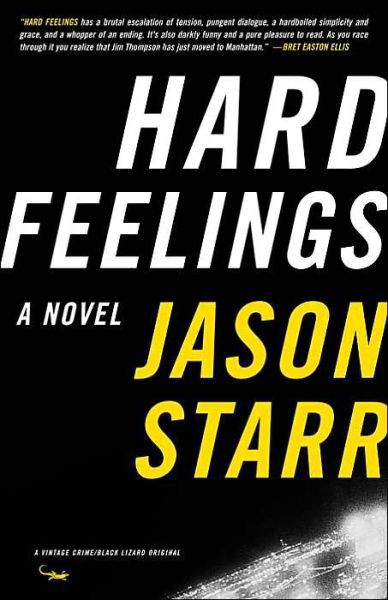
Hard Feelings PDF
Preview Hard Feelings
Things aren’t going so well for Richie Segal. His prospects at the job are pretty miserable and, what’s more humiliating, his wife’s prospects at her job are pretty good. Richie knows he’s a good salesman, but he just can’t seem to land an account. And he’s starting to drink again. And worry about whether Paula’s seeing that old high school flame, or maybe someone new. It’s a little early, at thirty-four, for a mid-life crisis, but that’s pretty much what it feels like. And there’re those unwelcome memories of the neighborhood bully, Michael Rudnick and what he did to Richie when he was thirteen. Richie Segal’s feeling, well, abused.
Just when Richie’s about as low as he can get, he runs into Rudnick on the street and knows exactly what he needs to do. And suddenly things seem to be going much better. That is until they get much, much worse. In the classic tradition of Jim Thompson and James M. Cain, Hard Feelings is novel that lets us into the mind of an ordinary guy capable of things that even he couldn’t have imagined.
Amazon.com ReviewPenzler Pick, March 2002: Perverse as she was, I think Patricia Highsmith would approve. With his fourth novel, Jason Starr stakes his claim on the claustrophobic territory that she carved out so brilliantly for the four decades of her writing career. And the people at Vintage/Black Lizard, the publishers of Hard Feelings as their first-ever original paperback--who have a number of Highsmith titles on their classic-noir list--know it. They are also invoking the name of another darkly unsettling and equally legendary American writer. The editor-in-chief of Black Lizard, Edward Kastenmeier, says, "Reading Hard Feelings was like the first time I read The Killer Inside Me by Jim Thompson: eerie, disturbing and blackly comic."
Richie Segal, the increasingly strung-out narrator of Hard Feelings, is a yuppie New Yorker with a co-op in an East Side high-rise, an executive wife who's just received a promotion, and credit card bills to the tune of $20,000. He's failing at his job--selling computer networks to midsized companies--and has just seen on the street, out of the blue, a man who was his neighbor when they were teenagers. There's something painful about this fellow, Michael Rudnick, now a successful lawyer, that Richie has suppressed for more than two decades. And now that he has begun to remember it, the awful unfairness of their shared shadow history begins to pervade his life, haunting his waking hours... and his dreams.
Hard Feelings does a nearly faultless job of building tension and following Richie's descent into a world that resembles the one in which he has previously lived, in the same way a grimace resembles a grin. Fans of Donald E. Westlake's The Ax and Scott Phillips's The Ice Harvest will love it. It may also be the first "take-out" noir novel, since in typical New York fashion, Richie and Paula, his wife, possess a stack of menus rather than a batterie de cuisine. You can almost taste the chicken chow fun, the boxed pizza, the sushi-to-go, and other bicycled-over delicacies.
The ending may be a too-convenient cutting away from even the slightest glimpse of a crucial moment in Richie's final deterioration. Others may disagree. But, ultimately, this minor lapse doesn't keep it from being a terrific--and terrifying--book. --Otto Penzler
From Publishers WeeklyComputer systems salesman Richie Segal knows things are bad, but he has no clue how bad they can get in this effectively bleak successor to the noir tradition of Jim Thompson and David Goodis. Problems with his job, problems with his marriage suddenly seem of no consequence when he encounters his childhood neighbor, Michael Rudnick, walking down the street in New York. The sighting of Rudnick, now a prosperous lawyer, triggers a flood of repressed memories that begin to haunt Richie in every aspect of his life. What did Rudnick do to him in the basement rec room when he was just a kid? And what should he do to Rudnick now? Starr (Nothing Personal; Cold Caller) does a fine job nailing down his cast of vacuous yuppies, digital-age counterparts to the unsympathetic characters populating the paperback original novels of the 1950s. While Starr works his material well, wedding a modern understanding of repressed memories to a doomful noir scenario, as well as escalating the action with a consistent hand, he never manages a brilliant Thompsonesque leap completely over the top the angle that made Thompson such fun. Still, those looking for an uplifting read will find themselves trapped like rats between the wrong set of covers, as fans of noir bump into another author who can bring them down and cut loose with a savage kick to the ribs. (Jan. 15)the Black Lizard imprint.
Copyright 2001 Cahners Business Information, Inc.
